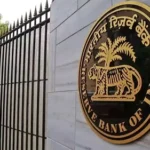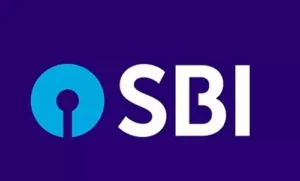The Reserve Bank of India (RBI) has introduced a significant directive aimed at improving governance, risk management, and compliance within banks. This comes amid increasing challenges posed by cybersecurity threats, digital frauds, and the need for robust credit and liquidity management. RBI Governor Shaktikanta Das emphasized the critical role of bank boards in addressing these issues by ensuring that discussions on risk and compliance take center stage at their meetings

The Focus on Governance and Risk Management
Governor Das highlighted the strides made by the Indian banking sector, including better asset quality, higher profitability, and improved capital adequacy. However, he underscored the importance of elevating governance standards further to enhance resilience against emerging risks. Key areas of concern include liquidity management, unsecured retail lending, and asset-liability mismatches, which continue to challenge the sector
The RBI has reiterated the necessity for banks to focus on cybersecurity measures and effective management of third-party risks. Boards are expected to play a pivotal role in strengthening internal assurance functions and ensuring proactive risk mitigation strategies
Mandating Monthly Risk Discussions
Under the new guidelines, banks are now required to prioritize risk and compliance as a core agenda in monthly board meetings. This includes addressing trends in unsecured lending, monitoring credit growth against deposits, and improving liquidity risk management. Such regular reviews aim to foster a culture of accountability and forward-looking decision-making at the highest level of governance
Tackling Digital and Cybersecurity Threats
As digital fraud and cybersecurity breaches become more sophisticated, the RBI has urged banks to intensify customer awareness programs and implement robust controls. This includes addressing “mule accounts” used for fraudulent activities and investing in innovative security technologies. Cybersecurity has been recognized as a critical frontier requiring immediate attention to protect customer data and ensure trust in the financial ecosystem
MSME and Cross-Border Trade Initiatives
Another focus of the RBI’s directive is to ensure sustained credit flows to the Micro, Small, and Medium Enterprises (MSME) sector. Additionally, banks have been encouraged to increase the use of the Indian Rupee in cross-border transactions, aligning with broader policy goals to enhance the currency’s global acceptance
Implications for the Banking Sector
The RBI’s latest move marks a shift towards more proactive and transparent governance in banks. Monthly discussions on risk are expected to improve the overall resilience of the banking system. However, this also places significant responsibility on boards to execute these mandates effectively. For the industry, the new measures could lead to increased compliance costs in the short term but promise long-term benefits by fortifying the sector against crises.
The directive also highlights the RBI’s balanced approach—acknowledging the progress made while addressing existing vulnerabilities. With an emphasis on innovation and customer protection, banks will need to strike a fine balance between maintaining profitability and meeting regulatory expectations.
Conclusion: The Road Ahead
As Indian banks navigate an increasingly complex financial landscape, the RBI’s directive is a timely intervention to ensure robust governance and risk practices. By mandating structured board-level oversight, the central bank aims to fortify the sector against both traditional and emerging challenges. Moving forward, how effectively banks implement these measures will play a crucial role in shaping the resilience of India’s financial ecosystem.



















